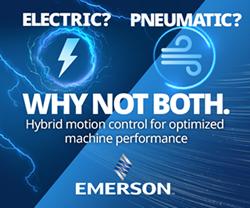Intels Antony Neal-Graves has shared his initial thoughts on how the industrial landscape will evolve in 2017.
Intel Forecasts 2017 Industrial IoT Trends
Anthony Neal-Graves | Intel
Intel’s Antony Neal-Graves, VP of the Internet of Things Group and GM of the Industrial and Energy Solutions Division, has shared his initial thoughts on how the industrial landscape will evolve in 2017.
Key trends in IoT industrial in 2017
- Bringing connectivity to new and existing sensors on factory floor to have better visibility into factory operations.
- Sending information from tools, equipment, robots, etc. to business intelligence systems to better monitor system health and enable predictive maintenance solutions.
- Integrating more wearable technologies such as smart glasses and smart helmets with factory workers to aid in performing complex tasks and reduce errors.
- Initial adoption of new technologies such as Augmented Reality in production environment.
- Expanding adoption of Additive Manufacturing (3D printing).
Achieving Successful OT and IT Convergence
- End-to-end security implementation from the edge (device or asset) to the fog or the cloud (this is table stakes before adoption will occur in an OT environment)
- Organizational and decision making process changes – new IoT roles will be created as a result (e.g. Chief Digital Officer)
- Adoption of IT technologies and best practices in the OT space (software upgrades, security patches, etc.)
Industrial sectors still to lag in fully embracing IoT
- Long product lifecycles means that there are many legacy devices in the field that are not scheduled to be upgraded anytime soon; initial IoT solutions must be “bolt-on.”
- Broad array of proprietary vertical solutions: scaling of IoT solutions is a significant challenge.
- Historically conservative customer base (e.g. factory owners); resists deploying new technologies until they are risk free.
Market Shift for Manufacturing in the Coming Years
- Most geographies such as Germany, U.S., and PRC have government backed initiatives to drive leadership in manufacturing technologies.
- Low labor cost geographies are likely the ones that would potentially see the biggest negative impact as IoT increases the ROI of automation.
Industrial technologies that will increase in adoption for 2017 and beyond
- Robots (more specifically Cobots: robots that are mobile and collaborate with humans to complete tasks).
- Industrial wearable platforms (smart glasses, smart helmets).
- Increased adoption of additive manufacturing.
- Deployment of IoT technologies to drive increased supply chain visibility (starting with high value inventory).
Areas to flourish with industrial IoT solutions
- Asset monitoring and tracking (supply chain logistics).
- Smart grids and digital oil fields (increased visibility asset performance and maintenance needs).
- Smart buildings with initial focus on energy management.
The Future of AI and 5G Adoption and its Impact on Industrial
AI and 5G will likely be adopted later than 2017; industrial requires longer lead times for the maturation of technologies before it gets deployed.
.jpg) Antony Neal-Graves is vice president in the Internet of Things Group and general manager of the Industrial and Energy Solutions Group at Intel Corporation. He is responsible for driving and developing compelling Internet of Things (IoT) solutions to support the automation and control of industrial machinery and processes in manufacturing and production environments; solutions for the generation, transmission and distribution, automation, security, and consumption of electricity; and solutions for the efficient extraction and refinement of oil and gas products.
Antony Neal-Graves is vice president in the Internet of Things Group and general manager of the Industrial and Energy Solutions Group at Intel Corporation. He is responsible for driving and developing compelling Internet of Things (IoT) solutions to support the automation and control of industrial machinery and processes in manufacturing and production environments; solutions for the generation, transmission and distribution, automation, security, and consumption of electricity; and solutions for the efficient extraction and refinement of oil and gas products.
The content & opinions in this article are the author’s and do not necessarily represent the views of ManufacturingTomorrow
Comments (0)
This post does not have any comments. Be the first to leave a comment below.
Featured Product

